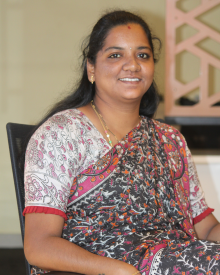Thejaswini D
Thejaswini D, MSc(Chemistry) BEdGraduate Primary Teacher(GPT)Dedicated, resourceful and goal-driven professional educator with a solid commitment to the social and academic growth of every child.Committed to creating a classroom atmosphere that is stimulating and encouraging to students.Professional Educator with diverse experience and strong track record fostering child-centered curriculum and student creativity in various prestigious institutions of Mysuru such as St Joseph’s central school, Mount Litera Zee School and Edutel technologies.
